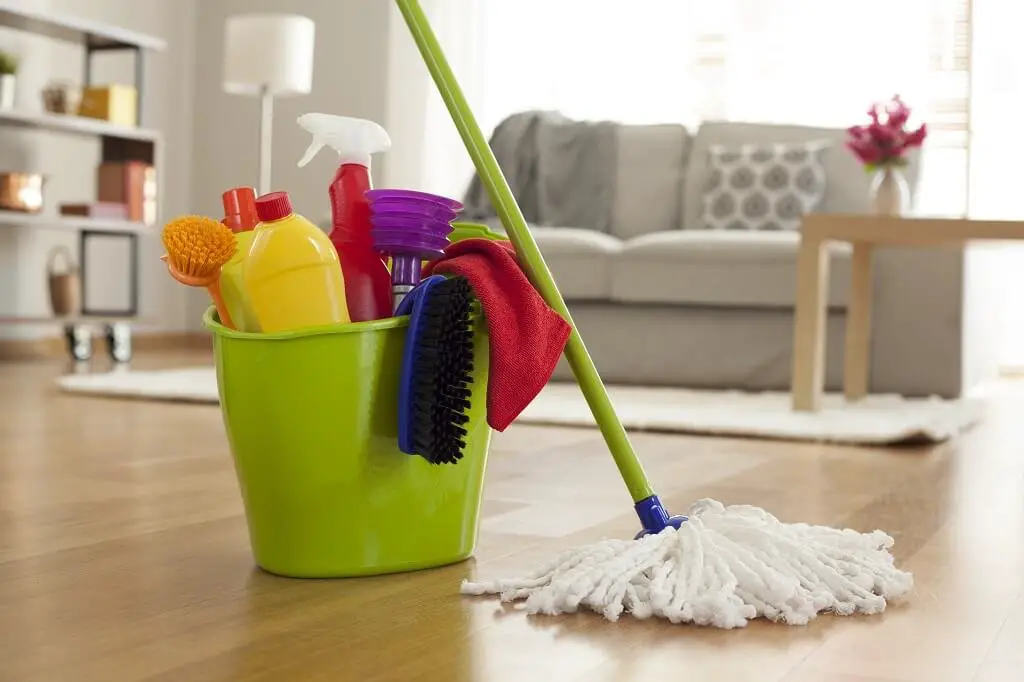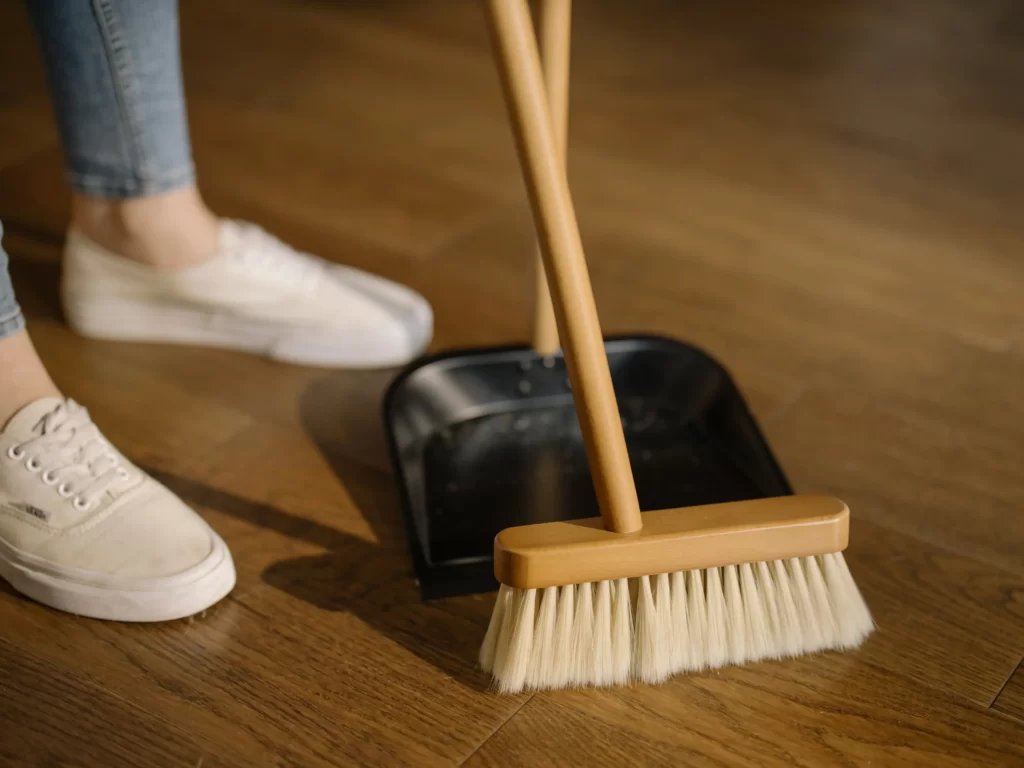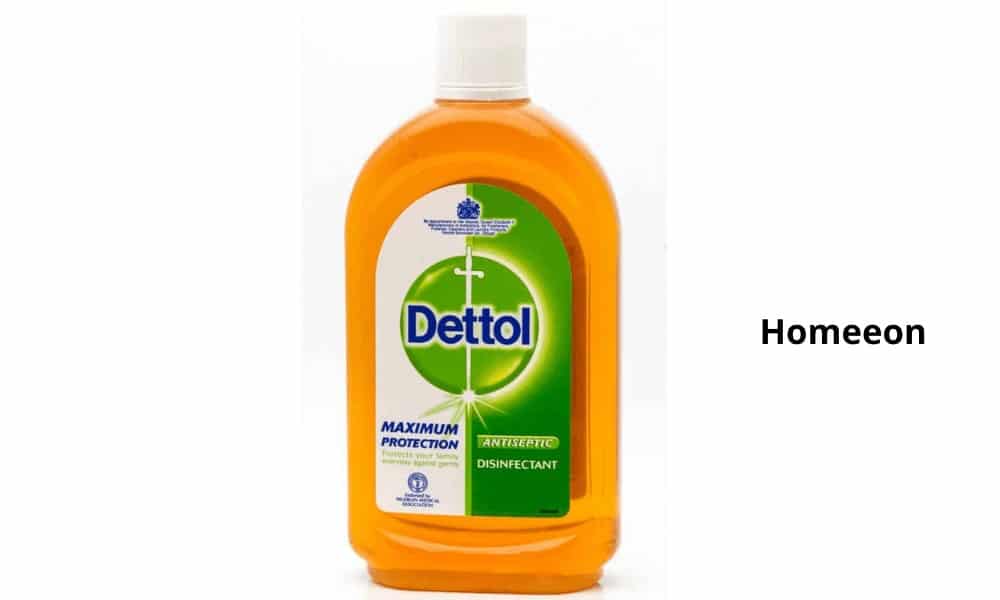Last Updated on August 3, 2023 By Emma W. Thomas
Using expired Savlon, Dettol, or any antiseptic to clean the floor is not recommended. Expired products may lose effectiveness, fail to kill germs, and potentially cause harm. Always use products within their recommended date for optimal results and safety.
Can One Use Expired Savlon, Dettol, Or Any Antiseptic To Clean The Floor?
The application of expired antiseptics, such as Savlon, Dettol, or any others in the household context, particularly floor cleaning, is a subject of critical concern. The efficacy, potential risks, and alternatives are aspects to be considered. Here are some points to consider:
1. Uncertain Efficacy
Once an antiseptic passes its expiry date, there’s no guarantee about its effectiveness. The chemical compounds that eliminate bacteria may have already degraded or altered. As a result, using expired antiseptics for cleaning purposes may not ensure proper disinfection.
2. Potential Health Risks
Interestingly, using expired antiseptics doesn’t pose serious threats as taking expired medicine. Yet, there could be minor potential health implications. Since these products can no longer effectively eradicate germs, the microorganisms left behind could multiply, posing a potential health hazard.
3. Manufacturer’s Recommendations
Responsible manufacturing brands of products such as Savlon and Dettol firmly state that their products should be used before the expiry date. The manufacturers issue expiry dates to indicate the period within which the product maintains its optimal performance.
4. Environmental Concerns
Improper disposal of expired antiseptics can harm the environment. If the antiseptic’s active ingredients have degraded, they can potentially react with other elements when disposed of leading to environmental pollution.
5. Possible Alternatives
Instead of using expired antiseptics, consider alternative cleaning methods. Homemade cleaning solutions, for example, baking soda and vinegar, can sometimes serve as effective alternatives for floor cleaning.
| Expired Antiseptics Handling | Recommendations |
|---|---|
| Efficacy | Do not rely on expired antiseptics for effective disinfection. |
| Health risks | Consider potential health hazards associated with ineffective disinfection. |
| Manufacturer’s Guidance | Adhere to suggested expiry dates by product manufacturers. |
| Environment | Dispose of expired antiseptics properly to prevent environmental pollution. |
| Alternatives | Use effective alternative cleaning approaches instead of expired antiseptics. |
So, while using expired Savlon, Dettol, or any antiseptic to clean the floor may not present serious risks, it is not recommended due to uncertain efficacy, potential health risks, manufacturer’s guidance, environmental concerns, and the availability of alternative solutions. Practicing caution with the use of expired products will ensure that homes remain safe, healthy, and sanitary.
What Is The Effect Of Using Antiseptics Post Expiry?

Even though savlon and Dettol play a vital role in controlling bacterial infections, some studies have shown some bacterial resistance in them. Sometimes when these products are post-expiry, they may develop some biofilms, cellular impermeability, and mutation. Their implication to human health varies depending on the bacteria’s incriminated resistance. Some bacteria such as Pseudomonas, proteus, and Providencia have been resistant to expired antiseptic.
Despite a lot of cleaning with these expired antiseptics, there are still health hazards to look out for. Antiseptics also lose their antiseptic property when they expire and are not as effective as before. When an expired antiseptic is used on the body, one may develop some skin rashes, and when used on an open wound, they may aggravate the situation to worsen. They are likely to cause infections more than when the injury had been left alone and not treated with expired antiseptic. After all, there is no guarantee of effectiveness after the expiry date since the antisceptic will not work as intended.
What Is The Difference Between Antiseptics And Anti-Bacterial?
Antiseptics are antimicrobial substances applied to the skin to reduce bacterial infection chances. They can be transported through the lymphatic system and destroy bacteria found in the body. Antiseptics also have the ability to destroy microorganisms found on non-living objects and surfaces. Some antiseptics are germicides with the ability to destroy and kill microbes, whereas others are only bacterial static, meaning that they can only inhibit microbial growth.
On the other hand, anti-bacterial are types of antimicrobial drugs used to treat and prevent bacterial infections. They inhibit bacterial growth. Anti-bacteria are also known as antibiotics, and mostly they either slow down or inactivate bacteria but do not destroy them. They are primarily used in soaps and disinfectants. In other words, anti-bacterial are antiseptics that can act against bacteria.
In contrast, anti-bacterial only targets bacteria as a source of infection, whereas antiseptics cover a broader spectrum of organisms that cause infections.
How Are Antiseptics Used?
Antiseptics such as Dettol and Savlon have a wide range of household use. They are used to prevent skin infections and as first aid, before further treatment is provided. Dettol is sometimes used to treat infections in certain areas of the body. In domestic environments, savlon and Dettol are used in cleaning children’s items and clothes, for example, Dettol liquid. Other households even add some of it to their bathing water. One should avoid using them for more serious and deep wounds such as animal bites and burns since they are better when treated by medical professionals.
Other antiseptics such as lozenges are used to treat throat infections. They are also used for cleaning surfaces before an operation or injection. The most common antiseptics use handwashing which proved to be handy since the coronavirus pandemic hit the world. They were used to clean the most commonly used surfaces to destroy bacteria and viruses.
Can One Use Savlon Cream On The Skin After Expiry?
Savlon antiseptic cream is used during first aid and in cases of other skin problems such as minor burns, spots, insect stings, cuts, and grazes. Some doctors recommend using savlon cream to treat skin injuries as soon as possible to help reduce the risks of an infection. However, one should not use expired savlon to treat an open wound such as grazes and burns. Savlon creams expire twelve months after opening and should be disposed of as recommended by the manufacturers.
Some chemicals may be harmful when used after expiry, which may cause more serious health effects. However, instead of disposing of it, it would do one no harm when used for purposes other than the skin. For example, expired savlon can be used on door hinges to reduce friction and noise. It can also be used to clean house floors and surfaces.
Does Dettol Expire?
Most expiry dates are based on high tolerances that a manufacturing company has tested. They test how safe and viral a product can be after packaging. For example, Dettol packaging can be labeled to expire two years from the manufacturing date, but in the real sense, it may still be good for use in 3 to 4 years. These years may not have been tested and cannot be certified for use.
Dettol cans clearly state that one should not use them after expiry. It is not the best decision but you can choose to use it moderately for cleaning after expiry. It is better to use the gently outdated one and to dispose of it when it has expired for more than five years.
What Are The Differences Between The Best Before The Date And The Expiry Date Of An Antiseptic?
The best before the date of an antiseptic is mostly mistaken for the expiry date, leading to antiseptics that could have still been used to end up in the trash. This date guarantees certain antiseptic properties to be effective up to this point. Once this date has passed, an antiseptic may lose its effectiveness, but it does not mean it is no longer safe to use. However, one should not use an item with a compromised odor and appearance. For example, some antiseptics may change color and become foamy. The best-before date is an excellent indicator that advises consumers on the best days to use the antiseptic.
On the other hand, the expiry date tells its consumers of the last day it is safe to use. Any effects past this date are not unknown, and one should be careful when using an antiseptic that is past its expiry date. An expiry date also means that the product has lost some of its antiseptic properties. Some items such as Dettol and savlon can be used for other purposes apart from their intended use, such as floor cleaning.
Other Commonly Used Terms In Antiseptics Concerning Their Expiry Dates?
The expiry date is simplified as the product’s last date for use. There are other terms relating to the expiry date used in antiseptics. They include;
Sell-By Date
When an antiseptic has a sell-by date, it is a warning to the stores on how long they can put up the product for sale. However, not all antiseptics have this as it is not mandatory. Savlon cream is one of the antiseptic products with a sell-by date since it has a specific expiry period, i.e., twelve months after opening.
Best Before Date
It strictly refers to the quality and effectiveness of an antiseptic and not its safety. The date is in no way whatsoever related to how safe an antiseptic is for use. This date is recommended for foods that tend to lose their flavor with time. It is mostly used in food products.
Use By Date
it is the last date for using an antiseptic when it is at its peak quality. The manufacturers of antiseptics usually determine the dates. Products such as the savlon cream could be susceptible if used on someone’s skin past these dates. These dates tell consumers on the days that are already proven to be safe. Any usage past these dates may have unknown effects.
Are Antiseptics The Same As Disinfectants?

Both antiseptics and disinfectants kill microorganisms and are interchangeably used. Some people even refer to antiseptics as skin disinfectants. There is a big difference between these two. First, antiseptics are applied to one’s body, whereas disinfectants are applied to non-living substances and surfaces. For example, in a hospital setup, the doctors use a disinfectant to clean the operating table and apply an antiseptic to the surgical body part.
Both antiseptics and disinfectants have similar chemical agents, usually known as biocides. The most commonly used biocides are hydrogen peroxide present in both of them. However, the amount of hydrogen peroxide used in disinfectants is higher than that in antiseptics, mostly because disinfectants are diluted before adding a small amount to water. Other differences that may be present are the ingredients used for fragrance. Both antiseptics and disinfectants may contain flavors depending on the consumers’ preference.
Conclusion
Both Dettol and savlon can be used to clean floors after their expiry date, mostly because an expiry date is just a date when a product is considered safe for its intended use. In this case, they are serving as disinfectants and not antiseptics. They may still have some ability left in them to destroy and kill microorganisms on the floor. However, this ability is not known as there are no studies of their use after expiry.
References:
https://www.quora.com/Can-I-use-expired-Savlon-or-Dettol-or-any-antiseptic-solution-for-floor-cleaning
https://www.eatingwell.com/article/7892982/how-to-tell-if-your-disinfectant-cleaner-is-expired-out-of-date/
Emma is a graduate of Domestic Science or Family and Consumer Sciences (Home Economics) from the University of Wisconsin. She has 7 years of experience Working with the strategic section of BestBuy and now writing full-time for Homeeon.
From Managing the Home, Interiors, Cleaning, and Exteriors to Gardening and everything about Making A Home Liveable – is her passion and this Homeeon is the result of this.
Emma loves decorating her home with the best stuff found online. She cares about quality over anything and writes reviews about them here in Homeeon. Get in touch with her over Pinterest.
Keep reading her blogs.

